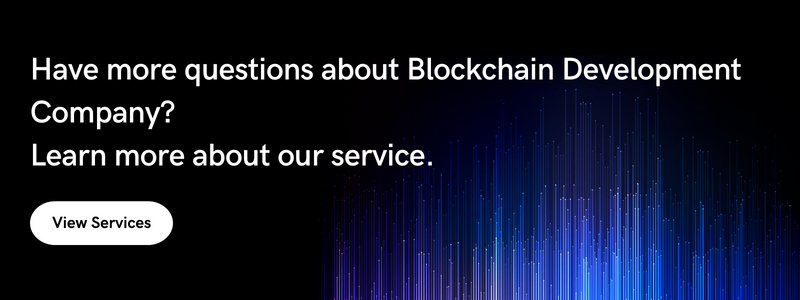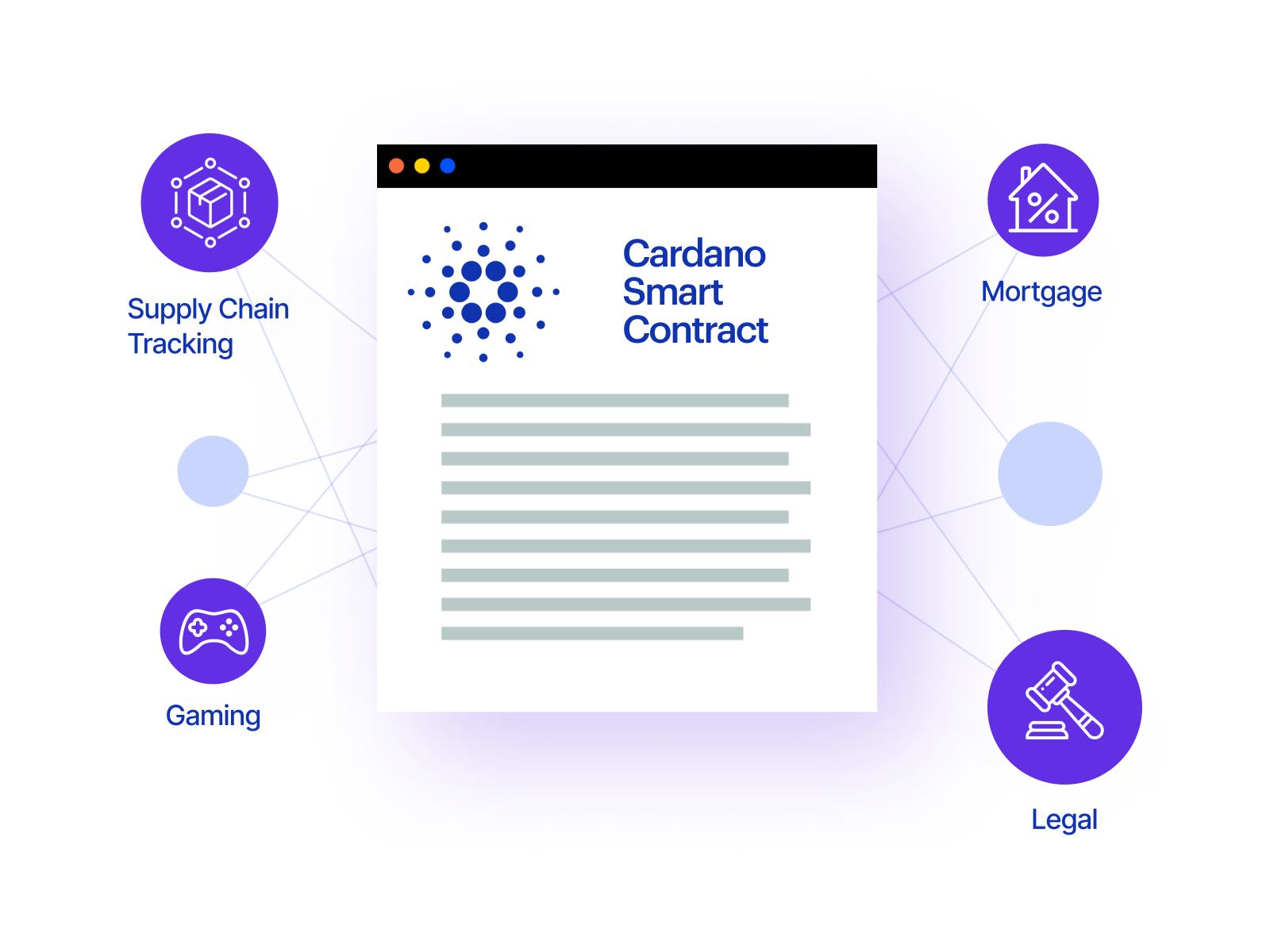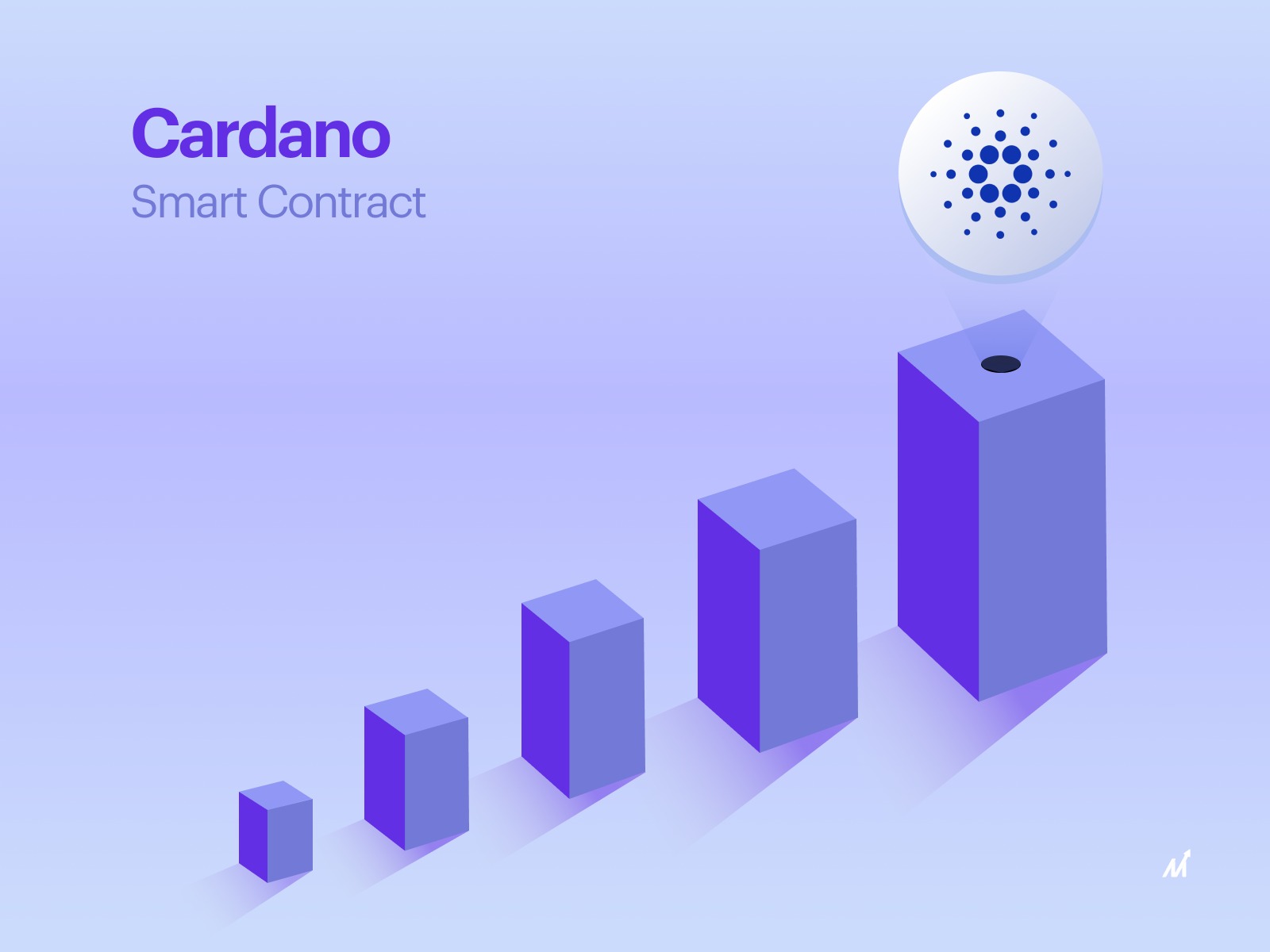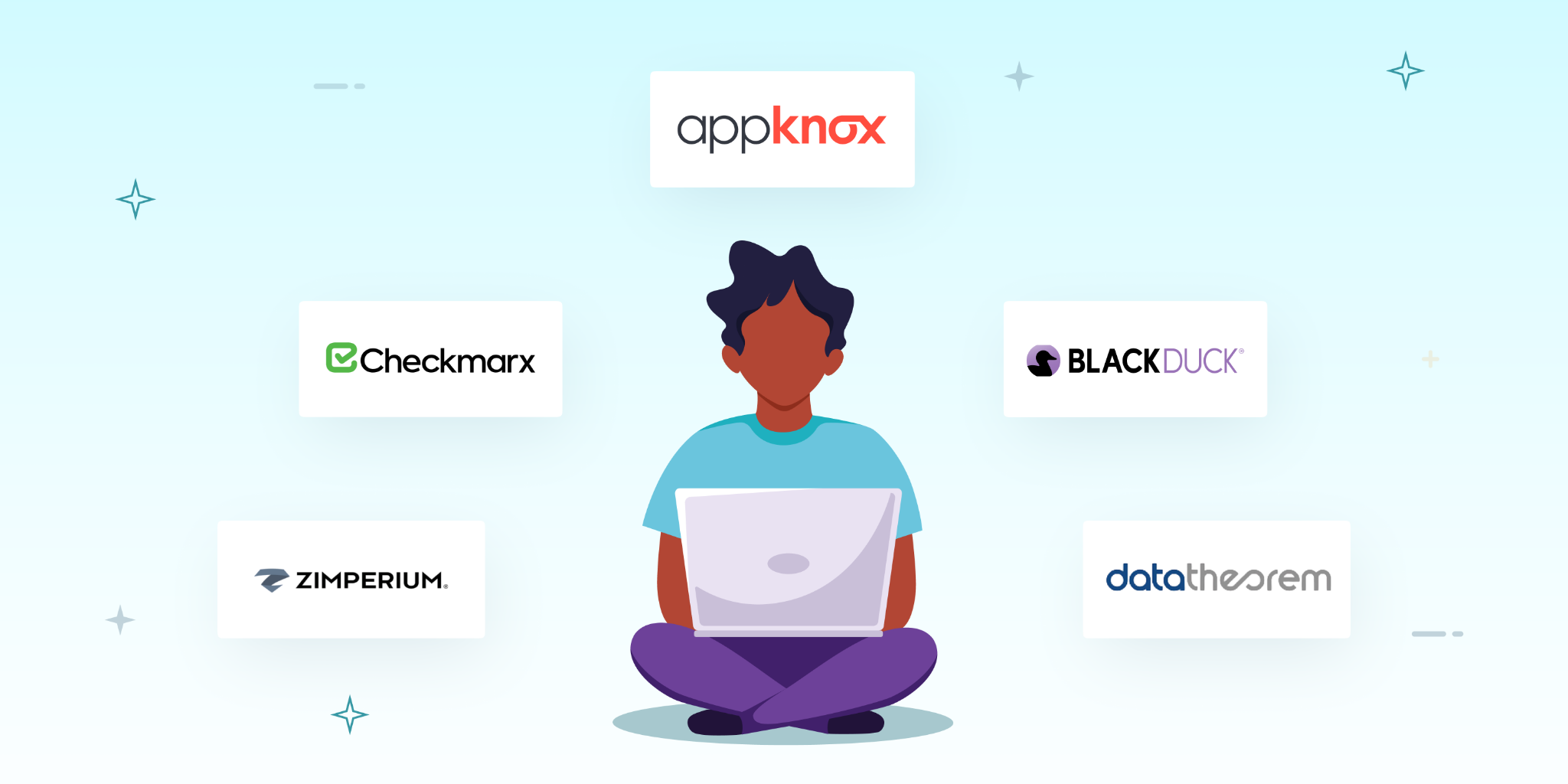Cardano Smart Contracts: Overview
Cardano is one of the most promising competitors to watch as Blockchain 3.0 has replaced Blockchain 1.0. The third generation of Blockchain delivers unique benefits and fixes the governance, sustainability, and scalability issues.
Cardano is a public Blockchain platform that is decentralized and equipped with smart contracts. It is an open-source platform that supports dApps. Cardano is a Blockchain that aims to outperform Bitcoin and Ethereum in terms of interoperability, scalability, and sustainability.
Cardano is a more robust and scalable Blockchain because it uses a proof of stake (PoS) consensus mechanism. Because of its consensus mechanism, which uses a unique multilayer design and mathematical ideas, it stands out among the next generation of cryptocurrency solutions.
As the seventh-largest cryptocurrency, it circulates 33,752,565,071 ADA, giving it a market value of $17 billion.
The Cardano Blockchain is referred to as the “Ethereum Killer” since it greatly reduces the issues of Ethereum, including its:
- High gas costs
- Limited scalability
- Slow transaction speeds & throughput
Its entry into an open conflict with Ethereum was made possible by the development of smart contracts. Cardano increases its utility by including Plutus, user-friendly scripts for all users.
Let’s dive in and bring your vision to reality!
ADA Smart Contracts
- Ada smart contracts are self-executing contracts written in the Plutus programming language.
- The contracts are stored on the Cardano Blockchain and executed automatically when the specified conditions are met.
- Ada smart contracts can create decentralized applications, tokenize assets, and automate processes.
- The Cardano Blockchain’s consensus mechanism secured the contracts, ensuring they were tamper-proof and could not be altered once deployed.
- Cardano uses a proof-of-stake consensus mechanism, which is more energy-efficient than the proof-of-work consensus mechanism used by other Blockchain technologies like Bitcoin.
- Using smart contracts on the Cardano platform can reduce costs, increase efficiency, and increase transparency in various industries, such as finance, real estate, and supply chain management.
Cardano Smart Contracts: Programming Languages Required
To develop Cardano Smart Contracts, three particular languages are needed. Hiring specialized developers with expertise in specific programming languages is a prerequisite if you want to create Cardano Smart Contracts. The languages are as follows:
Marlowe
Marlowe is a domain-specific language (DSL) for creating financial contracts on the Cardano Blockchain. Users can develop Blockchain apps tailored exclusively for financial transactions with the DSL Marlowe. The Marlowe DSL has the following benefits over a Turing-complete language:
- A promise of cancellation
- Guaranteed reliability
- Enhanced safety
The following features can be relied upon when implementing Marlowe:
- Mathematical verification of contract behavior using formal semantics.
- Integration with Cardano enables smooth contract deployment and execution on the Blockchain.
- Simulations to test the behavior of contracts in various circumstances.
- Availability of support for both on-chain and off-chain contract execution.
- A range of built-in financial primitives, including swaps, options, and time-based payments.
Learn more about Marlowe.
Plutus
As a functional programming language, Plutus views computation as assessing mathematical functions. This widely used programming language is based on Haskell, a popular programming language with a robust type system and expressive syntax.
- Due to Haskell’s support for higher-order functions, lazy evaluation, and immutable data structures, developers can now benefit from these features.
- To build more complex contracts, Plutus delivers a variety of built-in financial primitives, including options, futures, and swaps.
- Plutus provides a developing ecosystem of smart contract libraries that can be used to streamline the creation of typical contract patterns and functionality.
Learn more about Plutus.
Haskell
Since Haskell is a fully functional programming language, it views computation as the unaffected evaluation of mathematical functions. This makes it possible to reason mathematically about program behavior and to have a high degree of modularity and code reuse.
- Expressions are only evaluated in Haskell when necessary, which results in more effective code and occasionally better speed.
- Strong static typing in Haskell prevents common programming mistakes like type mismatches and null pointer exceptions by allowing compile-time type correctness checks. Additionally, it enables the development of more substantial, easier-to-maintain code.
- By enabling compile-time type correctness checks, strong static typing in Haskell avoids common programming errors like type mismatches and null pointer exceptions. It also makes it possible to write more robust and simpler code to maintain.
Learn more about Haskell.
How to Create Cardano Smart Contracts
Cardano uses Marlowe and its eight steps when creating a smart contract. Every stage of the execution can impact the payment process and result in warnings, even when reverting to a previous state and continuing the contract.

1. Pay
An agreement that involves payments or transactions transfers a token from the payee’s bank account to the other party.
Therefore, automatic alerts are sent if the funds are insufficient to settle the payment entirely. Additionally, an “edit” button in the contract is activated, and money is paid in phases based on availability.
2. Close
“Close” denotes how the Agreement will conclude (or end). Paying account holders with an unpaid balance is its primary purpose. On each of the accounts, the process is repeated.
Nevertheless, a single transaction is used to pay back all accounts. Defining the values, observations, and actions is vital before looking at other contracts.
3. Valuations, Actions, Observation
The term “values” refers to the progression of numbers over time, including “the current slot number,” “the current amount on a specific account’s account,” and any previous selections. They are known as volatile numbers in the broadest sense. Adding, subtracting, negating, and combining values based on observation are possible combinations.
Throughout the entire execution phase, these observations are helpful. Nevertheless, during the execution, specific events take place at particular times. As previously mentioned, these options can include:
- Deposits of money
- Picking one from a variety of options
- Points of some external value
4. Oracles
The Cardano Blockchain is developing Oracles accessible to Cardano users through Marlowe.
The choices made by an individual assuming the position of “Kraken,” a specialist Oracle, are modeled after Oracles.
5. If Obs
When a true conditional is used, it is built on the Boolean value of the observation obs and will remain the same if Obs cont1 and cont2 are executed.
6. When
In the contract, some cases spell out what happens when certain events occur, and the actions may or may not occur at a given time.
7. Let’s
The lease agreement’s ID Using an identification number, a contract can identify a value using the Val Cont function. Afterward, the values contained in the expression are evaluated and saved with the name ID. Later, it was expanded in continuation.
This method enables us to capture and store information that is erratic and subject to change over time, such as the current price of oil or the slot number being used at a specific point in contract execution, in addition to enabling us to employ abbreviations. Later on, this information may be useful when the contract is executed.
8. Assert
A contract with the phrase “Assert Obs Cont” still functions as cont notwithstanding the “Assert Obs Cont” clause. If the claim Obs is untrue, it does, however, issue an alert. Since the static analysis is useless should any execution outcomes be falsely declared, it might be used to guarantee that a property is valid at any point in the contract.

Use Cases of Cardano Smart Contracts
1. Supply Chain Tracking
The business ecosystems are quickly embracing Cardano’s smart contract technology. To check the authenticity of its shoes throughout its supply chain, New Balance, one of the biggest producers of sports footwear and apparel worldwide, has contracted Cardano. Buyers can verify footwear’s authenticity on the distributed ledger using the consumer-level verification method.
2. Gaming
Blockchain smart contracts have caused a profound upheaval in the gaming industry. The benefit is that players can join an eSports team without going through a drawn-out physical registration process. Cardano has changed the structure of the gaming industry, resulting in more equal, open, and lasting digital business models.
Cardano can give more customized gaming solutions as it develops, boosting interest and bringing in more money. The Cardano smart contracts store data like the time spent playing for a team, the number of competitions won, winning percentages, and more.

3. Legal
Cardano smart contracts have several applications in the legal sector, including but not limited to land registration, intellectual property rights, a chain of custody, litigation, settlements, and financial transactions.
A blockchain allows the automatic execution of legal contracts, accelerating the pace of operations. The smart contacts also ensure 100 % security.
4. Mortgage
A mortgage system built on Cardano smart contracts can quickly process debt and execute financial transactions more efficiently. Furthermore, it can immediately highlight any flaws in debt instruments.
Streamlining automation can make the real estate process simpler for buyers and sellers, increase productivity, and lower mortgage costs. It is simple to execute automatically by coding the Cardano smart contracts in accordance with the mortgage agreements.
FAQs Related to Cardano Smart Contracts
1. Why is Cardano smart contracts better?
Cardano-based smart contracts simplify international commodities transfer and payment initiation using LoCs (Letters of Credit). This improves the liquidity of financial assets. Additionally, it boosts the financial efficiency of various stakeholders.
2. What problem does Cardano solve?
Cardano seeks to address cryptocurrency systems’ sustainability, interoperability, and scalability issues. The first issue is the slowness of networks and expensive fees brought on by an increase in transaction volume.
3. Why is Cardano superior to Ethereum?
The Cardano system is more scalable and capable of supporting more transactions than Ethereum. Transaction volume is a problem for Ethereum. The network operates flawlessly in times of calm. However, Ethereum can’t keep up when a bull market begins, and millions of new investors start investing in cryptocurrencies.
What Role Does Markovate Play in the Creation of Cardano Smart Contracts?
Markovate can play a critical role in the creation of Cardano smart contracts. Creating a Cardano smart contract can be complex and technical, requiring specialized expertise in blockchain development.
- Understanding the Use Case: The first step in smart contract development is to understand the use case for the Contract. Together, we identify the problem the Contract will solve, what features it needs, and what business rules it needs to incorporate.
- Choosing a Smart Contract Framework: We choose a smart contract framework for Cardano development. The most popular framework for Cardano smart contracts is the Plutus platform, a functional programming language based on Haskell.
- Writing the Smart Contract: Our developers would then write the smart contract code in Plutus based on the use case and design specifications. The smart contract code should include the necessary business logic and security features to ensure the Contract’s reliability and immutability.
- Testing the Smart Contract: After writing the smart contract code, we test the Contract to ensure its proper functioning. This includes functional and security testing to ensure that the Contract operates correctly and that no vulnerabilities or weaknesses exist in the code.
- Integrating the Smart Contract with dApps: We then integrate the smart Contract with the relevant decentralized application (dApp). This involves writing the code to interact with the smart Contract from the dApp and testing the integration.
At Markovate, we provide specialized expertise and technical know-how. Working with us, businesses and organizations can build secure and reliable smart contract-based applications on the Cardano network that accelerate their development.
Contact us if you want to create Cardano Smart Contracts successfully.






















Discussion about this post